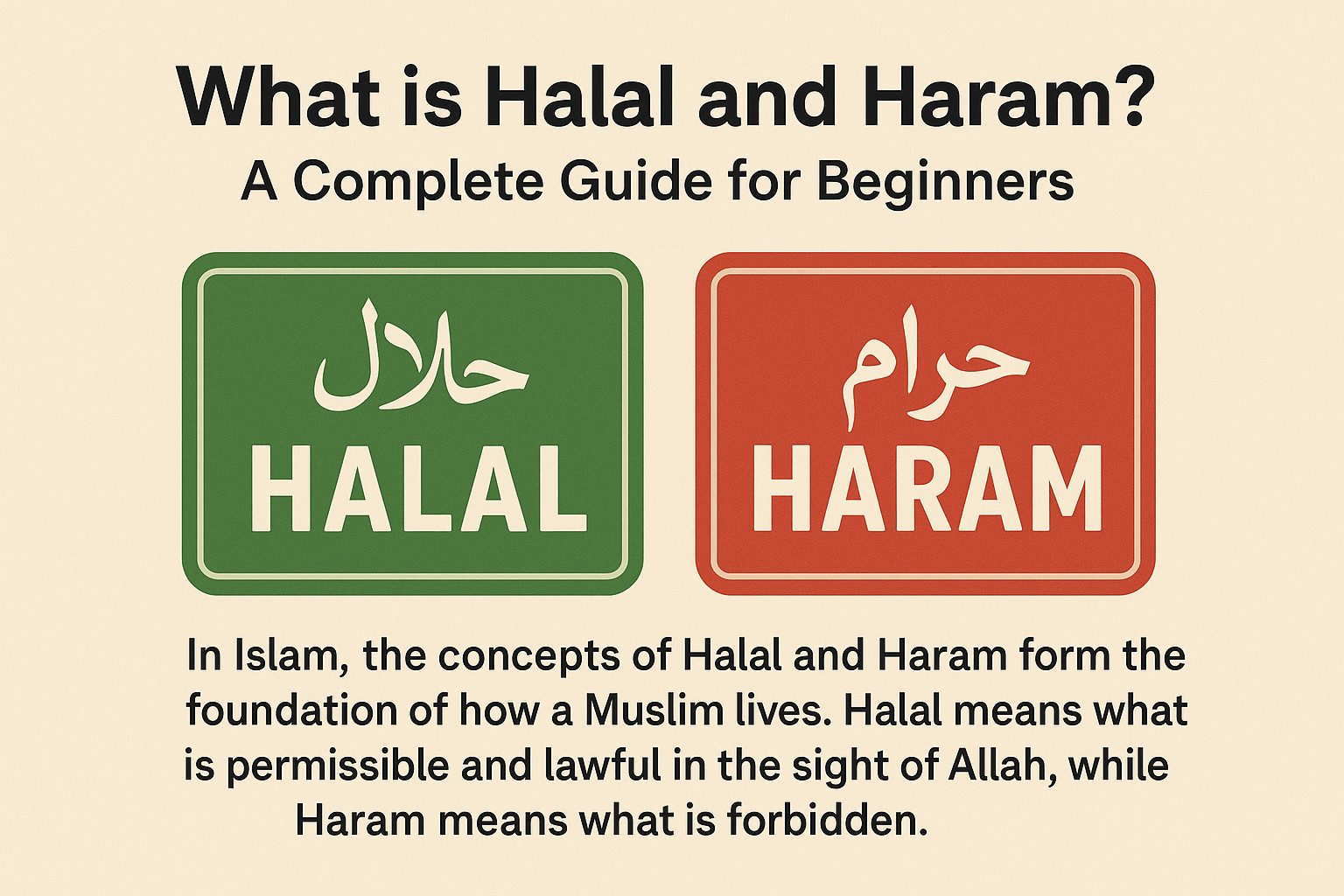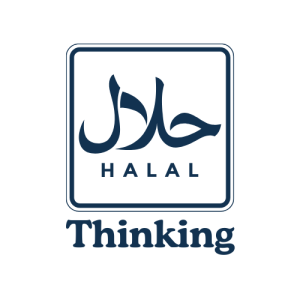In Islam, the concepts of Halal and Haram form the foundation of how a Muslim lives. Halal means what is permissible and lawful in the sight of Allah, while Haram means what is forbidden. These two principles cover food, drink, money, clothing, relationships, and even everyday behavior.
For Muslims across the world—in Bangladesh, Malaysia, the Middle East, Europe, or the USA—knowing the difference between Halal and Haram ensures that life remains within the boundaries of faith. This article explains these concepts with references to Qur’an, Sunnah, and Islamic scholarship, and applies them to food, finance, lifestyle, and modern challenges.
What Does Halal and Haram Mean?
The word Halal means lawful or permissible. Anything that Allah and His Messenger have allowed is Halal. Haram means unlawful or prohibited—anything that Allah and His Messenger have forbidden.
Islam also recognizes a third category called Mashbooh (doubtful). These are unclear matters where scholars may differ. The Prophet Muhammad (peace be upon him) said:
“What is lawful is clear, and what is unlawful is clear, and between the two are matters which are doubtful. Whoever avoids doubtful matters clears himself in regard to his religion and his honor.” (Bukhari and Muslim)
Sources of Halal and Haram
Only Allah has the right to declare something Halal or Haram. Muslims are not allowed to invent rulings without evidence. The primary sources are:
- The Qur’an – direct revelation from Allah.
- The Sunnah – teachings and practices of Prophet Muhammad (peace be upon him).
- Fiqh (Islamic jurisprudence) – interpretation by scholars through consensus (ijmaʿ) and analogy (qiyās).
IslamQA summarizes: “Haram in Islam is that for which the one who does it may be punished and the one who abstains from it will be rewarded. Halal is that in which there is no sin in doing it and no sin in not doing it.”
Halal and Haram in Food and Drink
What Foods Are Considered Halal?
Halal food includes:
- Meat from animals slaughtered according to Islamic method in the name of Allah.
- Fruits, vegetables, grains, and seafood (with some exceptions depending on schools of thought).
- Pure, natural ingredients free from harmful substances.
In many countries, halal certification bodies such as JAKIM (Malaysia), IFANCA (USA), or Halal Bangladesh Board help ensure food is Halal.
Which Foods and Drinks Are Haram?
The Qur’an and Sunnah clearly forbid:
- Pork and all its derivatives.
- Alcohol and intoxicating drinks.
- Carrion (dead animals not slaughtered properly).
- Blood and blood-based products.
- Animals sacrificed to other than Allah.
In modern times, additives like gelatin, enzymes, or emulsifiers can be doubtful (mashbooh) if their source is unclear.
Halal and Haram in Finance
Why is Interest Haram in Islam?
Islam strictly prohibits riba (interest/usury). Interest-based loans exploit people and create inequality. Instead, wealth must be earned through trade, effort, and lawful investment.
Halal Financial Alternatives
Islamic finance offers solutions that avoid riba, gharar (excessive uncertainty), and maisir (gambling). Common methods include:
- Mudarabah – profit-sharing partnerships.
- Murabaha – cost-plus financing.
- Ijarah – leasing arrangements.
Many countries now have Islamic banking systems. In Malaysia, the Islamic banking sector is well-established; in the UK and USA, halal investment funds are growing rapidly.
Halal and Haram in Lifestyle
Clothing and Modesty
Halal clothing covers the awrah, promotes modesty, and avoids imitating indecent fashions. For men, clothing should not be silk or gold. For women, clothing should be loose, modest, and cover the body appropriately.
Entertainment and Media
Entertainment that promotes sin, indecency, or wastes life is haram. Gambling, immoral films, music that encourages sin, and obscene media fall into this category. Beneficial, educational, or moral entertainment is permissible.
Social Behavior
Islam emphasizes honesty, kindness, fairness, and respect for family. Haram behaviors include lying, cheating, injustice, and unlawful relationships.
The Concept of Doubt (Mashbooh)
When something is not clearly Halal or Haram, it falls into the doubtful category. The Prophet encouraged Muslims to avoid doubtful matters to protect their faith. This principle applies to new issues such as digital banking, artificial ingredients in food, or modern technologies where rulings are still under discussion.
Global Importance of Halal and Haram
Halal is no longer only a religious guideline but also a global market. The halal economy now includes food, travel, cosmetics, pharmaceuticals, and fashion. For example:
- In Malaysia and Indonesia, halal certification is legally regulated.
- In Europe and North America, halal restaurants, products, and finance are rapidly increasing.
- In the Middle East and Bangladesh, halal compliance is part of daily life and strongly tied to faith.
This shows that Halal and Haram principles guide both personal life and global industries.
Conclusion
Halal and Haram are not merely lists of rules. They are a divine framework for living a pure, healthy, and ethical life. They protect Muslims from harm, guide them to beneficial actions, and bring spiritual blessings.
By following Halal in food, wealth, clothing, and behavior, Muslims live in harmony with their faith. Avoiding Haram keeps life clean from what Allah has forbidden.
The Qur’an reminds us:
“Say: The things that my Lord has indeed forbidden are shameful deeds, whether open or secret, sins and trespasses against truth and reason, associating partners with Allah, and saying things about Allah of which you have no knowledge.” (Qur’an 7:33)




